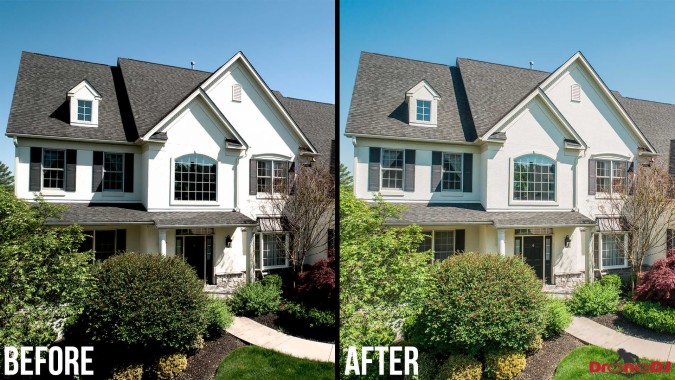
In the ever-evolving world of beauty and personal care, finding a salon that stands out can be a daunting task. For those seeking not only style but also quality and expertise, a Certified Hair Professional Salon can make all the difference. Imagine stepping into a space where your hair goals are not just understood but elevated by trained professionals who are passionate about their craft.
Salon Glam, located in the heart of North Burnaby, is a shining example of what it means to embrace luxury and professionalism in hair care. As a Bellami Hair Professional Certified Salon, it promises not just an appointment, but an experience tailored to your individual needs. Here, you are treated to a blend of skillful artistry, the latest trends, and the highest quality products that will leave your hair looking and feeling its absolute best.
What Makes a Certified Hair Professional Salon?
A Certified Hair Professional Salon is a prestigious designation that signifies a commitment to excellence in the beauty industry. Such salons, like Salon Glam in North Burnaby, have undergone rigorous training and evaluation to meet high standards set by professional organizations. This certification ensures that the stylists possess advanced skills and knowledge in various aspects of hair care, styling, and treatment, enabling them to deliver exceptional results consistently.
One of the key features of a Certified Hair Professional Salon is its emphasis on the use of high-quality products and techniques. These salons prioritize providing clients with the best available services, whether it involves cutting-edge hair treatments, precision cuts, or color applications. The professionals in these salons stay updated on the latest trends and innovations in hair care, ensuring that their clients receive modern and effective solutions tailored to their specific hair types and preferences.
Moreover, a Certified Hair Professional Salon fosters a welcoming and luxurious environment for its clients. From the moment you step in, you can expect comprehensive consultations where hairstylists listen to your needs and desires, creating a personalized experience. This focus on customer satisfaction goes hand in hand with technical excellence, making such salons a go-to destination for those seeking top-tier hair services.
Experience the Salon Glam Difference
At Salon Glam, every visit is a journey into luxury and personal care. As a Bellami Hair Professional Certified Salon, we pride ourselves on offering a unique experience that caters to the individual needs of our clients. Our highly trained stylists utilize top-quality products and industry-leading techniques to ensure that your hair receives the best possible treatment. From the moment you step through our doors, you will be enveloped in an atmosphere that feels both welcoming and indulgent.
What truly sets Salon Glam apart is our commitment to personalized service. We understand that no two clients are alike, which is why our stylists take the time to consult with you about your hair goals, preferences, and lifestyle. This one-on-one approach allows us to create tailored services that enhance your natural beauty while also ensuring you leave feeling confident and revitalized. Whether you’re looking for a sleek cut, vibrant color, or transformative extensions, our team is ready to bring your vision to life.
Lastly, at Salon Glam, we believe that luxury extends beyond just the treatments we offer. Our salon is designed to provide a serene escape from the stresses of everyday life. Enjoy a complimentary beverage while you relax in our stylish and comfortable space. Our focus is not only on transforming your hair but also on providing an enjoyable and memorable experience that keeps you coming back for more. Join us at Salon Glam and discover how we redefine luxury in hair care.
Services Offered at Salon Glam
At Salon Glam, clients can indulge in a wide range of hair services designed to enhance their natural beauty. From professional haircuts to stunning blowouts, every treatment is tailored to meet individual preferences. The experienced stylists assess hair types and textures to ensure each client walks away with a look that complements their style and personality.
Color services at Salon Glam stand out for their quality and creativity. Whether clients desire a bold fashion color or a subtle balayage, the certified professionals use only premium products to achieve the desired results. The focus is not just on aesthetics but also on maintaining the health and integrity of the hair, ensuring that every transformation is both striking and safe.
In addition to cutting and coloring, Salon Glam offers specialized treatments such as deep conditioning and texture services. These treatments nourish and rejuvenate the hair, leaving it soft, shiny, and manageable. Clients can also enjoy styling services for special occasions, including updos and event-ready hairstyles, making Salon Glam the ultimate destination for a luxurious hair experience.
Client Testimonials and Success Stories
Clients of Salon Glam have consistently shared their transformative experiences, highlighting the magic that happens when professional expertise meets personalized service. One satisfied customer expressed her joy after a complete makeover, stating that the certified stylists at Salon Glam not only listened to her vision but also brought it to life beyond her expectations. Her new look, complemented by expert styling techniques, left her feeling rejuvenated and confident.
Another client shared her journey of restoring her hair’s health after years of damage. She specifically mentioned how the team at Salon Glam treated her hair with care and used high-quality products, resulting in noticeable improvement after just a few visits. The warm atmosphere and supportive staff made her feel comfortable, making it a delightful experience rather than a daunting task. She now encourages friends to try out the salon for their own hair emergencies.
Additionally, a long-time client praised the continuous education and training of the stylists at Salon Glam. She appreciates the latest trends and techniques that they integrate into their services. With each visit, she has noticed how the certified professionals introduce innovative styles that suit her personality and lifestyle. The consistent level of quality and expertise reassures her that she’s in the best hands, solidifying her loyalty to Salon Glam.








